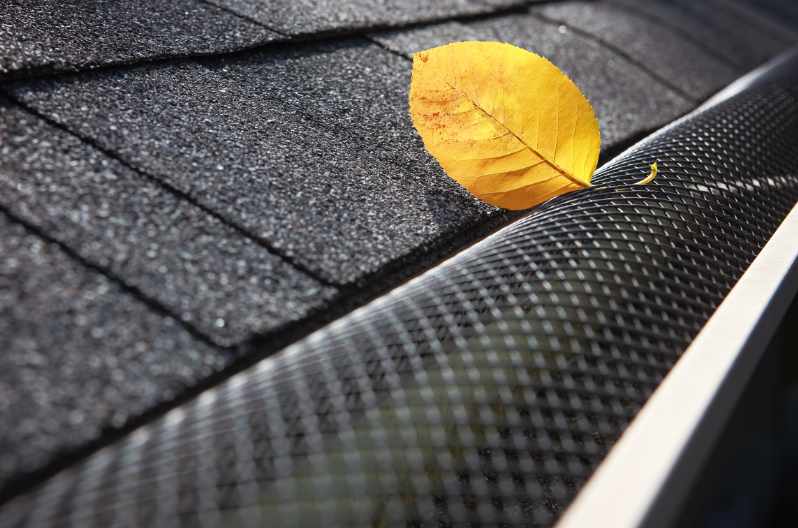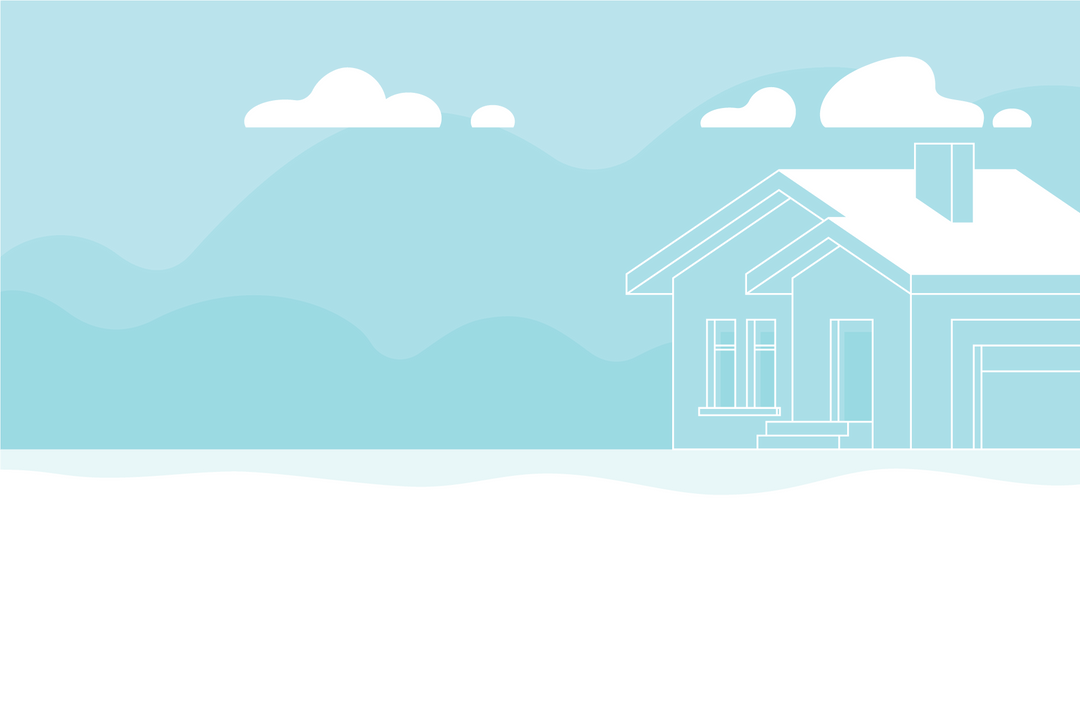
Are Gutter Guards Worth It?
Are you tired of cleaning your rain gutters? Do your clogged gutters overflow every time it rains? Thinking about getting gutter protection? Gutter guards are a popular investment that can save you time and prevent gutter clogs. While gutter covers and leaf guards can be an effective way to keep your gutters clean and functioning properly, they all come with advantages and disadvantages. In the long run, are gutter guards worth it? The answer largely depends on the exact guard style and your goals. We take a closer look at the pros and cons of adding gutter protection so you can decide if they are worth investing in for your home.
Are Gutter Guards Worth the Cost?
Gutter guards are worth the cost in certain situations. But it depends on various factors such as the type of gutter protection system, your local climate and average rainfall, the type of debris that is common in your area, and the frequency at which you need to clean your gutters.
Gutter covers or guards are designed to prevent debris like leaves, twigs, and other small objects from accumulating in your gutters. This helps prevent blockages that can lead to water damage or other issues.
If you live in an area with a lot of trees or other vegetation that sheds debris, then gutter guard systems can be helpful in reducing the frequency of gutter cleaning and minimizing the risk of damage.
However, not all guards are as effective as others or will work in all situations. For example, not all gutter systems are effective in heavy rains.
Some types of gutter guards block out large leaves but are less effective at pine needles and smaller items. And even the best gutter and leaf guards still let in at least some dirt. That dirt will eventually build up over time and lead to clogs.
Additionally, some guards do not work with certain roofs or gutter styles. As a result, you either have to replace your gutters or choose a different style of guard.
Overall, you should do your research if you are considering adding gutter protection. Then talk with a professional to determine which type of gutter guard works best for your specific situation.
In many cases, gutter guards can be a worthwhile investment in preventing gutter blockages and reducing maintenance requirements, but it is important to carefully weigh the costs and benefits before making a decision.
Overall Pros and Cons of Gutter Guards
Ultimately, gutter guards can be an effective way to protect your gutters and reduce the need for frequent cleanings. However, there are definitely some things to consider.
The Pros:
- Designed to keep debris out of your gutters, which helps reduce clogs and the need for frequent cleanings. This can save time, money, and hassle over the long term.
- Help protect your home from water damage since they keep debris out of the gutters and ensure that water is properly diverted away from your home.
- Add value to your property, as buyers are often willing to pay a premium for a home with gutter guards installed.
The Cons:
- May require professional installation, which comes with an added cost
- Do not work with all types of rain gutters
- Can overflow during heavy downpours or storms
- Not entirely maintenance-free, despite their claims
Consider your budget, the climate in your area, and how often you are willing to clean your gutters before making a decision on whether or not gutter guards are worth it for your home.
What Are the Types of Gutter Protection Systems?
There are several main types of gutter guard systems. While they all work similarly, each has its own advantages and disadvantages.
It’s important to note that each type of gutter guard has its own pros and cons, and what works best for one situation may not work as well for another. It’s a good idea to consult with a professional to determine which type of gutter guard would be best suited to your specific needs.
Brush Gutter Guards
One of the common DIY gutter protection solutions, these cylindrical brushes fit inside the gutter. Also called hedgehog or bottle brush guards, the brush material prevents leaves and debris from accumulating while allowing water to flow through. They are easy to install and relatively low-cost but may require more maintenance than other guards. The brushes will eventually trap leaves and other debris, which will clog gutters and lead to overflows.
Pros:
- Easy installation: Brush guards can be easily installed without the need for professional installation. They can be trimmed to fit any gutter size and shape.
- Low maintenance: Since the brushes are made of durable materials, they require little to no maintenance. Simply remove the brush and rinse it off when necessary.
- Affordable: Compared to other types of gutter protection, brush guards are relatively inexpensive, making them an attractive option for those on a budget.
Cons:
- Limited effectiveness: While brush gutter guards can prevent larger debris such as leaves and twigs from clogging the gutter, smaller debris such as pine needles and seeds may still pass through the bristles.
- Accumulation of debris: Over time, debris can accumulate on top of the brush gutter guard, which can reduce its effectiveness and require more frequent cleaning.
- Potential for blockage: If the brush gutter guard becomes saturated with debris or freezes during winter, it can potentially block water from flowing through the gutter and cause damage to the roof or foundation.
Foam Gutter Guards
Another popular DIY solution, foam inserts fit inside the gutter and block debris while allowing water to flow through. They are easy to install and relatively affordable. However, they still clog over time and require more frequent cleaning than other styles.
Pros:
- Easy installation: Foam gutter guards are easy to install and can be customized to fit any size and shape of the gutter.
- Cost-effective: Foam guards are typically less expensive than other styles of gutter protection.
- Effective at filtering debris: They are effective at filtering out leaves, twigs, and other debris that can clog gutters.
Cons:
- Limited lifespan: They can degrade over time due to exposure to the elements and UV rays, which can reduce their effectiveness.
- Not suitable for heavy rainfall: In areas with heavy rainfall, foam guards may not be able to handle the volume of water, which can cause water to overflow and damage the roof or foundation.
- Requires periodic cleaning: Foam protection systems can accumulate debris over time, which can reduce their effectiveness and require periodic cleaning.
Mesh Screens
Also called gutter screens, these are thin plastic or metal screens that cover the top of the gutter. They allow water to flow through while blocking leaves and other large debris. They are relatively easy to install and affordable but may require frequent cleaning and can become clogged if debris accumulates on top of them. Some mesh styles are screwed directly into the gutters, which increases the chances of leaks.
Pros:
- Cost-effective: Mesh screens are usually less expensive than other styles of gutter protection.
- Easy installation: They are easy to install over most gutter sizes and styles with or without professional installation.
Cons:
- Limited effectiveness: Mesh guards will block out large items like leavers and twigs but may still allow pine needles, seeds, and other debris into your gutters.
- Accumulation of debris: They can collect dirt and debris inside the gutter or end up with leaves on top of the mesh coving, reducing how effective they are.
- Potential for blockage: Because of the size of the mesh, they are more prone to blockages than some gutter guard styles.
Reverse Curve Gutter Guards
Commonly called gutter covers, hats, or helmets, they feature a curved plastic or metal cover that fits over the top of the gutter. Using surface tension, they direct water into a narrow slit while allowing leaves and debris to slide off the edge of the roof. They are effective at preventing debris buildup and can be relatively low-maintenance, but may be more expensive than other types of gutter guards. However, they still require occasional maintenance to remove dirt build-up inside. This is often time-consuming and costly since you need to remove the covers.
Pros:
- Highly effective: They are highly effective at preventing debris such as leaves, twigs, and pine needles from entering the gutter while allowing water to flow freely.
- Long lifespan: These gutter covers are made of durable materials such as aluminum or stainless steel, which can withstand exposure to the elements and last for many years.
- Low maintenance: They require minimal maintenance and can be easily cleaned with a hose or brush.
Cons:
- Can be expensive: Reverse curve gutter guards are typically more expensive than other guard styles.
- Installation can be challenging: They require professional installation, as they need to be properly secured to the gutter to prevent them from coming loose.
- May not handle heavy rainfall: In areas with heavy rain, they may not be able to handle the volume of water, which can cause water to overflow and damage the roof or foundation.
Micro Mesh Gutter Guards
These are fine metal mesh covers that fit over the top of the gutter and prevent even small debris from entering while allowing water to flow through. They are highly effective at preventing debris buildup and require minimal maintenance, but can be more expensive than other types of gutter guards.
Pros:
- Effective at filtering debris: Mesh screens are effective at filtering out even small debris such as pine needles, seeds, and shingle grit, which can clog gutters.
- Durable: Mesh screens are made of durable materials such as aluminum or stainless steel, which can withstand exposure to the elements and last for many years.
- Low maintenance: Mesh screens require minimal maintenance and can be easily cleaned with a hose or brush.
Cons:
- Can be expensive: Mesh screens are typically more expensive than other gutter protection systems.
- Installation can be challenging: Mesh screens may require professional installation, as they need to be properly secured to the gutter to prevent them from coming loose.
- May not handle heavy rainfall: In areas with heavy rainfall, mesh screens may not be able to handle the volume of water, which can cause water to overflow and damage the roof or foundation.

